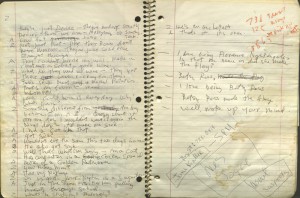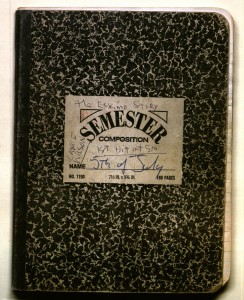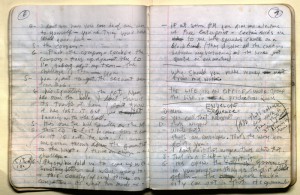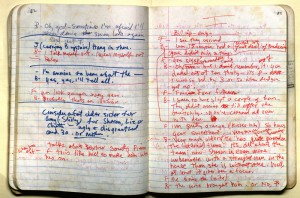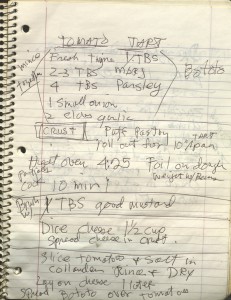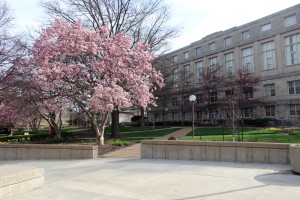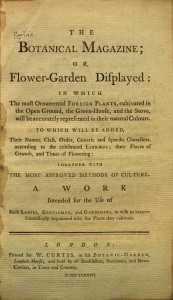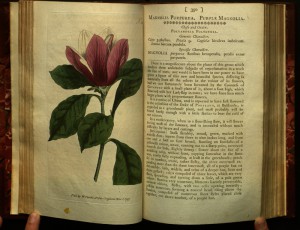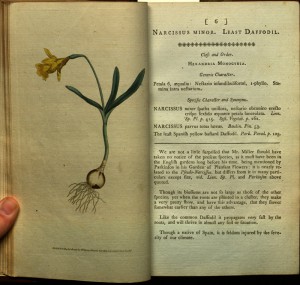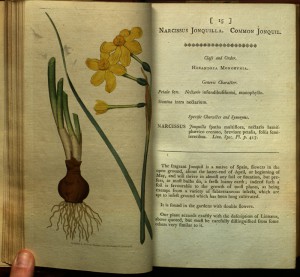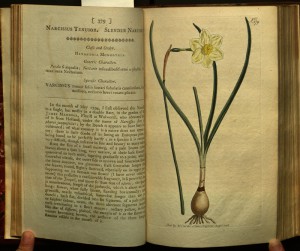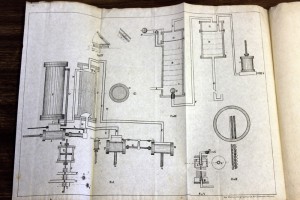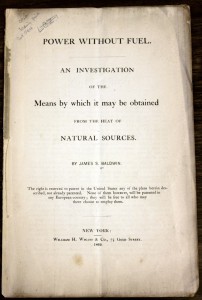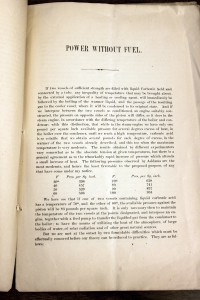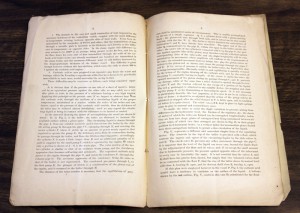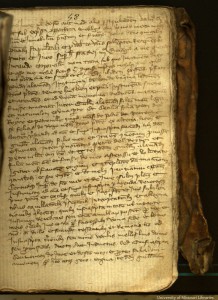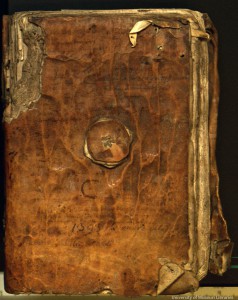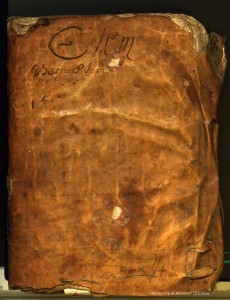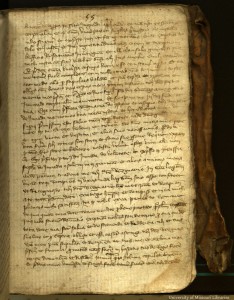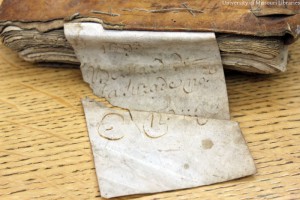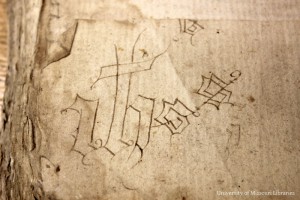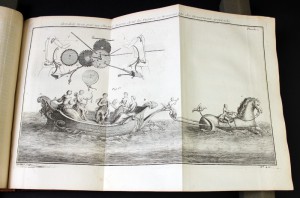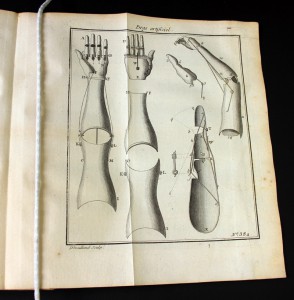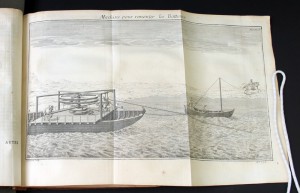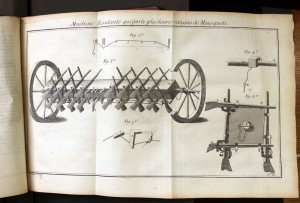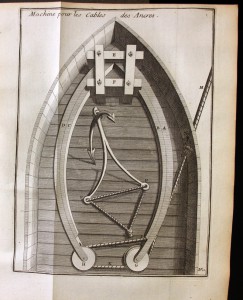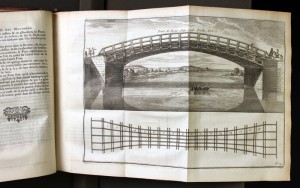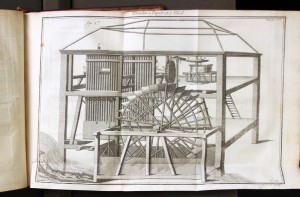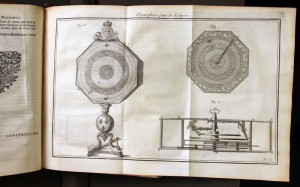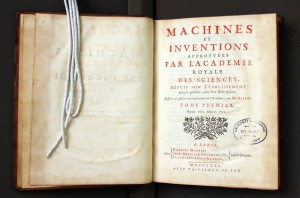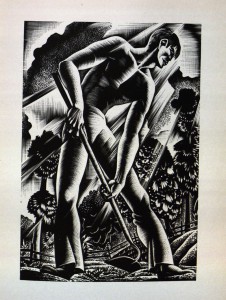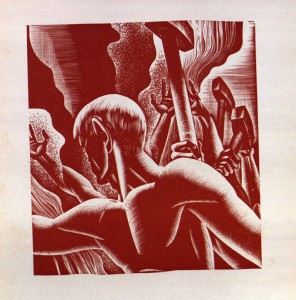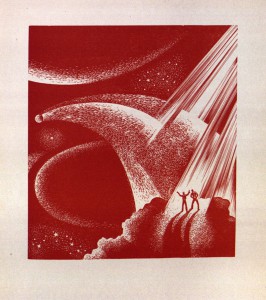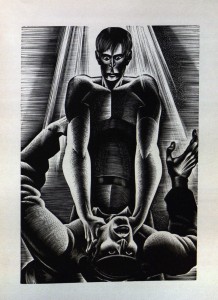New Offsite Storage Facility for MU Libraries (May 9, 2014)
The MU Libraries has selected a new temporary storage facility for the materials that were stored in the UMLD2 (Subtera) storage facility at the time of the mold outbreak. The lease for this new facility began on May 1, and is renewable annually for five years unless another agreement is made before that.
Books held there or at our other storage facility must be requested through the libraries or our online catalog, to be picked up on campus or in the case of many journal articles, for electronic delivery, usually within 48 hours and often more quickly. The new facility will not be fully operational until later this summer, but the libraries are fulfilling requests for items through interlibrary loans.
The climate controls at this facility are superior to those at the previous facility. This facility has heating, ventilation, air conditioning and cooling that meet library preservation standards.
MU Libraries, Mold Update (April, 2014)
Background
In October 2013, MU Libraries staff members discovered mold growing on books and bound journals in the Libraries’ secondary offsite book depository, in underground caverns north of I-70 in Columbia. The mold growth likely occurred due to inappropriate environmental conditions, specifically a spike in both temperature and humidity in July and August. A private environmental recovery company was retained to investigate, and they reported that the entire collection of some 600,000 volumes is presumed to be contaminated.
Because mold is destructive to printed materials, any volumes to be retained for use in the library collections must be treated to remove the mold before they can be used. Over the past several months, library staff members have been determining what portions of the contaminated volumes should be treated and retained and what portions must be permanently withdrawn and destroyed in order to remove any chance of contaminating other collections of print materials.
In order to meet the considerable costs involved in addressing this disaster, the MU Libraries will be using a special insurance fund established eight years ago to deal with such losses. However, estimates to decontaminate the collections, and to obtain new and more secure storage for materials retained for use, amount to far more than the current total on hand in the fund. With special insurance funding and potential added revenues from gifts and grants, the MU Libraries expect that approximately 400,000 volumes will be salvaged from the total volumes contaminated by mold.
Disposition of Collections
MU Libraries staff have identified three broad categories of materials to guide decisions in prioritizing items either for mold remediation or for permanent withdrawal from our collections. It is important to note that these categories are tools for informing decisions, rather than prescriptions for identifying items for either treatment or destruction. Likewise, examples listed are intended as illustrations of what kinds of materials will be considered for a given category, not rigid rules that will govern final disposition.
Category 1 – rare, distinctive and scarcely-held items to be treated and retained.
Examples in this category include:
· Materials published prior to 1871
· Materials that have unique characteristics or that form part of a distinctive collection
· Materials that have local significance or value
· Materials held by 10 or fewer libraries worldwide (as determined by OCLC analysis)
· Materials with distinctive characteristics (e.g., non-English language works; graphic arts, illustrations or photographs; mathematical formulae; etc.)
Category 2 – multiple copies or readily accessible items that may be withdrawn permanently.
Examples in this category include:
· Materials duplicated elsewhere in the MU Libraries, or in UM Library Depository.
· Materials duplicated at one or more of the other three UM System libraries.
· Materials duplicated within the MOBIUS consortium of Missouri libraries.
· Materials not in MOBIUS, but readily available via interlibrary loan from Greater Western Library Alliance (GWLA) and other regional partners.
· Materials duplicated electronically in trusted digital repositories of academic journals and books (e.g., JSTOR, Hathi Trust, etc.)
· Federal documents published post-1950. (Other libraries in the state have generously offered to replace mold-damaged copies with documents from their collections.)
Category 3 – decision deferred until more information is gathered and consultation is completed.
Materials not immediately placed into categories 1 or 2 will be retained until final decisions can be made either to retain or to withdraw permanently. We will be leasing a new space in which to hold these volumes while awaiting final decisions on their disposition. Because we are committed to having MU faculty assist in selecting materials to be salvaged and retained for our collections, having this holding space is essential.
Recent Developments
The MU Libraries have received many expressions of sympathy and support since news of the mold outbreak was released. A special fund has been established to assist in salvaging the thousands of books and journals that require special treatment to eradicate the mold, and a challenge gift of $5,000 has been offered by an anonymous donor to match any donations up to that amount. Individuals can contribute to the “Collection Enhancement Fund” via the MU Libraries website:
https://donatetomu.missouri.edu/givedirect/GDItem.aspx?item_id=117
In March, a proposal was submitted to a major private foundation seeking grant funding to pursue the plan to remediate contaminated volumes. We expect to learn in early June whether the proposal is accepted, and if so, the funding will begin July 1.
With guidance and approval from MU Facilities Planning and the UM Procurement Office, steps have been taken to obtain a contractor for treatment of volumes identified for salvage and to secure new and environmentally stable storage space for treated materials.
Proposals from mold-remediation contractors were solicited over the past two months, and seven bids were received on March 14. A preferred bidder has been identified and negotiations are now underway with the contractor. We expect to have a contract signed on or about April 1, with work to commence by the middle of the month.
After a search for suitable above-ground storage facilities in close proximity to the MU campus, three potential sites were selected for further review. From these, a preferred facility has been selected and negotiations for a lease are nearing completion. The new rental facility is above-ground, and the lease specifically addresses the need for stable climate control. We expect to have the lease signed soon and preparations underway to take occupancy on or about May 1.
Future Plans
This disaster has underscored the need to pursue purpose-built, environmentally secure space for long-term storage of our physical collections. Since 1997, the UM Library Depository (UMLD), the primary storage facility used by MU and the three other libraries of the UM System, has worked flawlessly in this capacity. Located on LeMone Blvd., off Highway 63 in Columbia, the UMLD contains about 1.2 million print volumes, which are used by the four UM campuses and are also available to all libraries in the state via the MOBIUS network. The facility was designed to accommodate an addition which would double the space of the original structure when it reached its maximum limit. Approaching that limit in 2006, a request was made to the UM academic officers to consider funding the UMLD addition, but that option was deemed to be cost-prohibitive. Instead, leased storage space was judged to be the preferred course of action.
The MU Libraries proposes to work actively with the campus administration to return the construction of the UMLD addition to the priority list for capital projects. The MU Faculty Council and the Library Committee have both expressed support for this option, and it is our hope that this request will be put before the University Board of Curators early in the new fiscal year.
Submitted by Jim Cogswell, Director of Libraries
April 3, 2014
